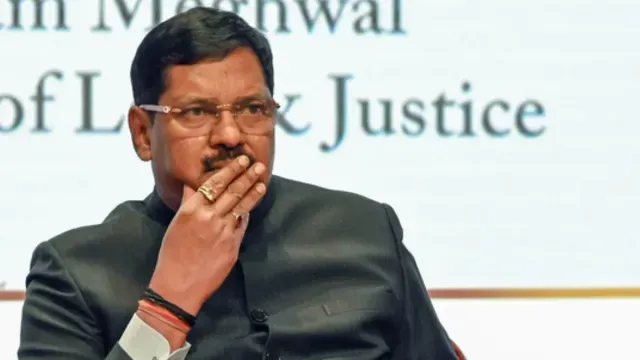- By Nidhi Giri
- Thu, 26 Jun 2025 12:03 PM (IST)
- Source:JND
Chief Justice of India BR Gavai termed the Constitution of India as supreme adding that all three wings of the democracy work under it. The CJI made the statement in reference to discussions on the supremacy of the executive, judiciary and the legislature on Wednesday while speaking at his felicitation in Maharashtra’s Amravati.
“While many say and believe that Parliament is supreme, according to me, it is the Constitution of India that is supreme. All three wings of democracy work under the Constitution," CJI BR Gavai said.
CJI Gavai also talked about a judgment on the foundation of the ‘basic structure’ doctrine that was passed by the top court. He added that the Parliament cannot alter the basic structure of the Constitution.
“A judge should always remember that we have a duty, and we are custodians of the rights of citizens and constitutional values and principles. We don’t just have power, but a duty is cast upon us," CJI Gavai noted.
“We have to think independently. What people will say cannot become a part of our decision-making process," he added.
On June 19, CJI Gavai said without addressing the structural inequalities that marginalise large sections of society, no nation can claim to be truly progressive or democratic. He also emphasised that socio-economic justice is a practical necessity for achieving long-term stability, social cohesion and sustainable development.
Speaking at a function in Milan on the topic of "Role of Constitution in Delivering Socio-Economic Justice in a Country: Reflections from 75 Years of Indian Constitution", the CJI said justice is not an abstract ideal and it must take root in social structures, in the distribution of opportunity, and in the conditions under which people live.

